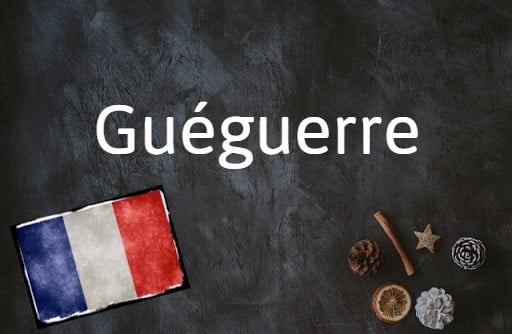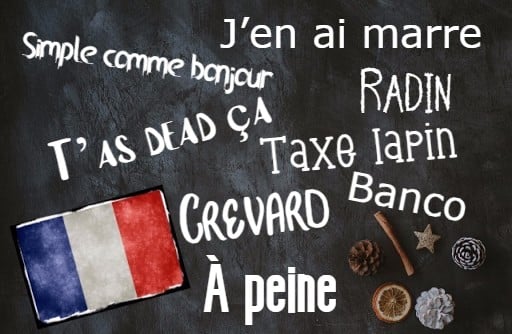Why do I need to know guéguerre?
Because it sounds similar to a word you probably already know, but its meaning is slightly different.
What does it mean?
If guerre is a serious word which refers to literal wars, then by repeating the first syllable (sort of – it sounds more like gay-gair), the word loses some of its gravitas, as if a child were trying to say the word guerre.
And that childish aspect is perfectly reflected in the meaning, too. A guéguerre is a quarrel, or a minor conflict, something its participants might think of as a war, but which is actually a lot more silly and juvenile. No more than a squabble.
It’s an informal term, but you’ll often see it used in the press – perhaps when the reporters themselves are questioning whether a particular spat is really worth covering. In recent months, it has been deployed for:
The Vegas Golden Knights ice hockey team taunting Montreal Canadiens fans by projecting a photoshopped image of Celine Dion in the Las Vegas team’s jersey onto the jumbotron.
The intra-Alsatian rivalry between the Bas-Rhin and Haut-Rhin départements, over everything from wine to linguistic differences.
The long-standing antagonism between far-left politician Philippe Poutou and far-right pundit Eric Zemmour, with Poutou recently covering up Zemmour’s posters around the city of Bordeaux.
Use it like this
Le Mont-Saint-Michel est au centre d’une guéguerre entre la Normandie et la Bretagne – Mont-Saint-Michel is at the centre of a quarrel between Normandy and Brittany.
La guéguerre entre les deux hommes politiques dure depuis des années – The squabble between the two politicians has been going on for years.



 Please whitelist us to continue reading.
Please whitelist us to continue reading.
Member comments